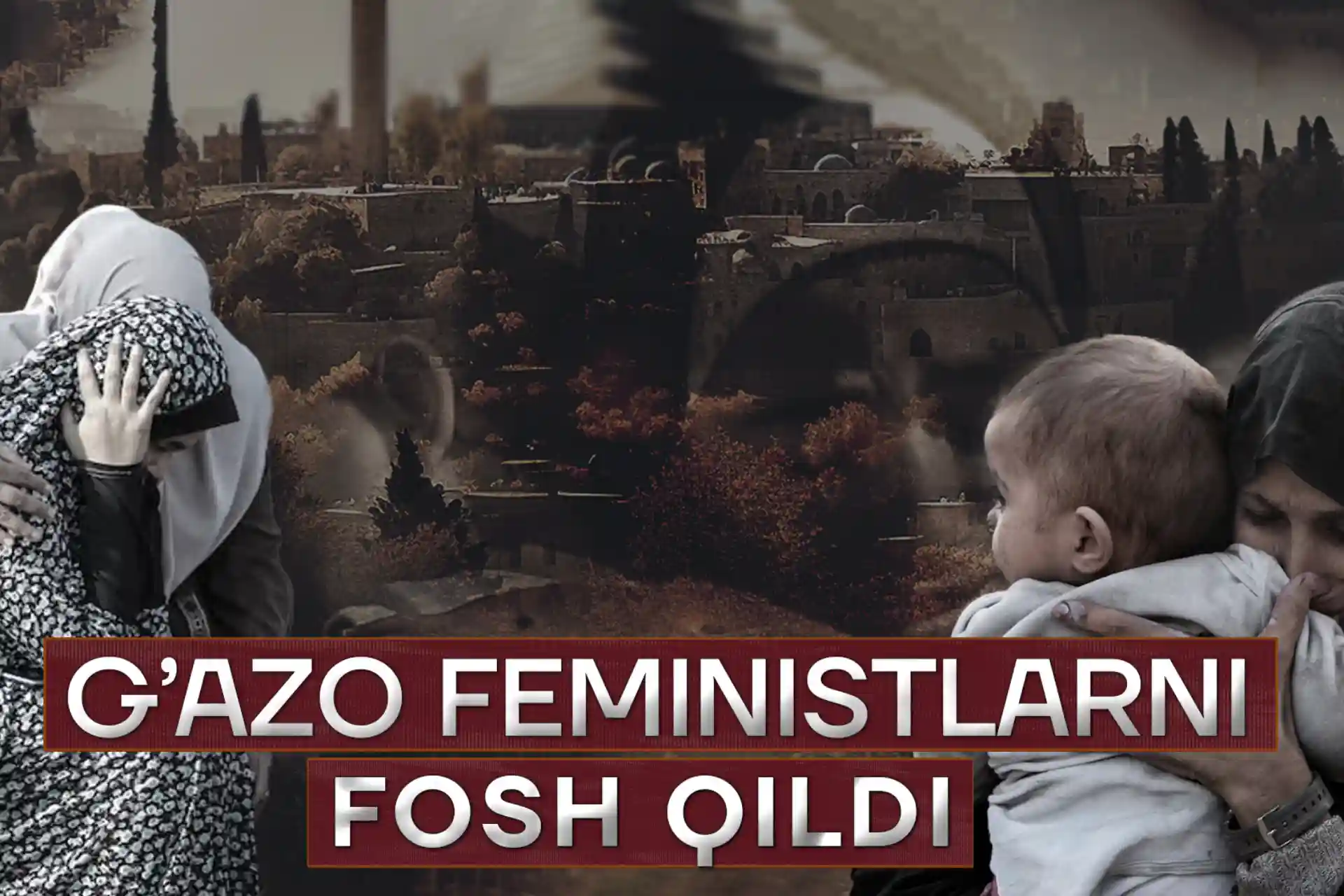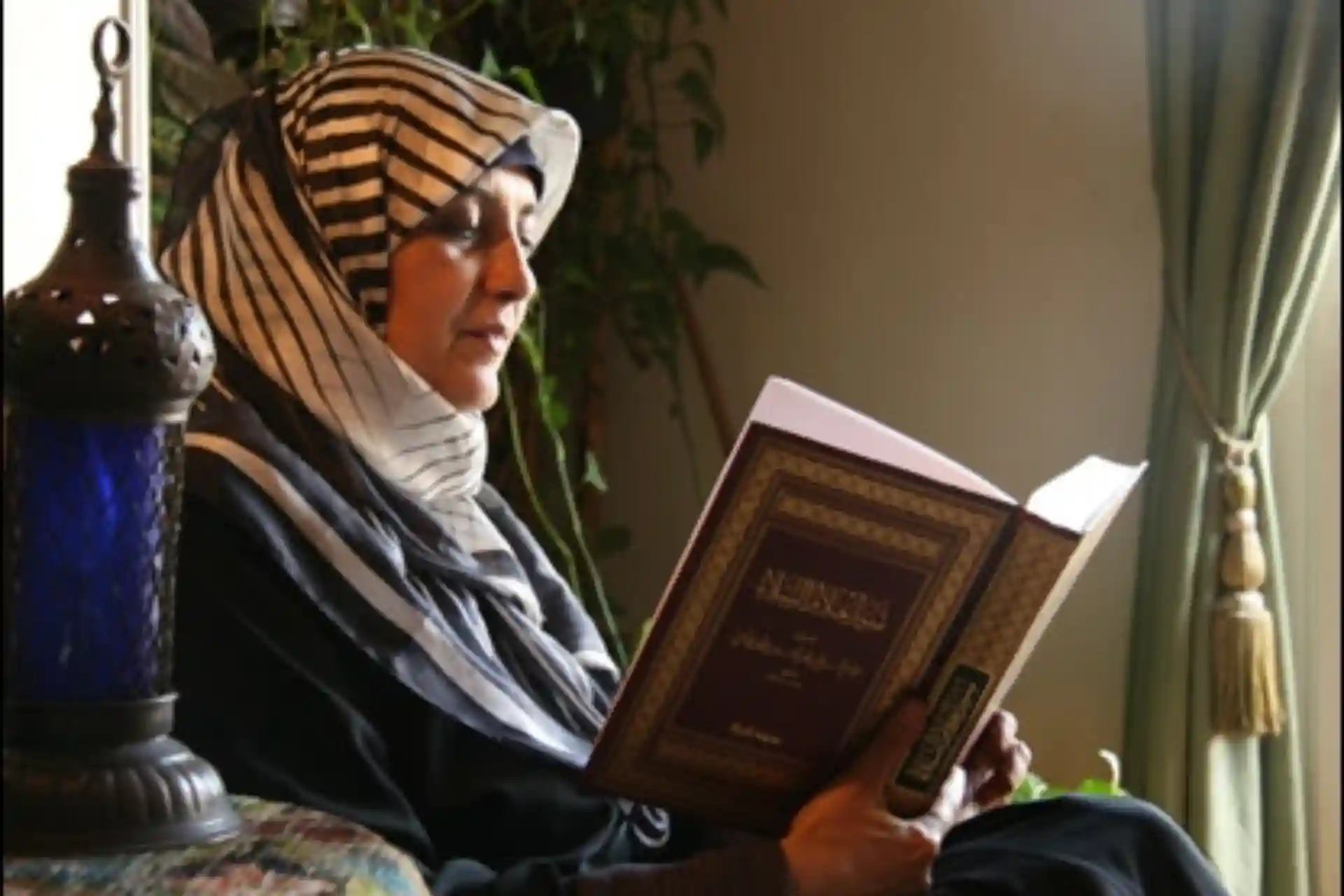Feminists' Gaza Test: Their True Faces Revealed
Gaza exposed feminists
Like many people around the world, I was devastated. I spend most of my day checking the news, reading about the tragedy, and wishing for an eternal end to the endless war in Gaza. I am also physically very tired. I'm spending my days off hiking with hopeless thoughts. Ehh, if most of us were to continuously take to the streets and speak out, our collective voice would finally push our leaders to call for a permanent ceasefire, maybe.
Physical and emotional exhaustion is on its way. Even worse, my anger and hostility towards my own country, the United Kingdom, and the apathetic feminists around the world, who seem completely indifferent to the suffering of the women in Gaza, are growing by the day.
Every day I come across comments and posts by feminists on social media. In their posts, they are busy alleging Hamas' abuse of Israeli women during the October 7 attack and subsequent mistreatment of female hostages. I did not know if there was any basis behind these claims. In any case, the use of serious crimes against women and girls is something that cannot be ignored, excused or forgotten.
But at the same time, these self-proclaimed feminists remain silent about Israel's similar abuses against Palestinian women.
Israel's years of siege and direct bombardment of Gaza have killed, maimed and left tens of thousands of Palestinian women and children in ruins. They faced the winter without housing and supplies. The near-total breakdown of the health system and the lack of food and clean water mean that 45,000 pregnant and 68,000 nursing mothers in Gaza are at risk of anaemia, bleeding and death. Currently, hundreds of Palestinian women and children are still imprisoned in the occupied West Bank, many without trial and forced to live in appalling conditions.
This disaster is clearly taking its toll, but most feminists in Britain and the West in general seem to be speechless about it.
Why is the plight of Palestinian women ignored? Why are the struggles of Palestinian women and children not seen as worthy of equal attention? I'm increasingly convinced that it's not just a lapse in attention, but a failure to see, the result of an irreparably damaged moral compass.
Over the past three months, I've thought about these questions deeply and seriously. I immersed myself in reading many feminist books and articles by authors I once respected, trying to understand their interpretation of feminism and why it did not include Palestinian women.
I have come to the conclusion that the feminism they promote claims that Palestinian women are primarily oppressed by Palestinian men, not by Israel or other external forces. To them, Palestinian women have almost no agency and are seemingly eternal victims of a society where gender-based violence is rampant. Moreover, according to them, it is synonymous with deeply patriarchal, religious and socially conservative groups like Hamas, which are known for violence and oppression of Palestinian men and women.
This is precisely why such a view helps feminists to justify their claims that Israel's attack on Gaza will help Palestinian women "free them from the clutches of Hamas," while completely ignoring the real, serious harm the war is doing to Palestinian women.
This approach is part of a flawed historical view, which always includes the colonial and imperialistic goals behind feminism. These feminists supported the US invasion of Afghanistan, ostensibly to "liberate Afghan women," but they would not even think of arguing, for example, for the forceful "liberation" of Jewish women living in deeply patriarchal and radical religious communities in Israel. they can't.
In this form of feminism, sympathy or outrage is not based on universal feminist principles or a desire to empower and empower all women, but on personal characteristics and political views. Such feminists, especially Muslim, foreground the struggle against men of color, making the rhetoric of women's liberation a tool to further the agenda of those in power. This is often done at the expense of the oppressed.
From this point of view, the silence of Western feminists on the need for a ceasefire in Gaza represents not only a moral but also a political decline. In this way, a form of feminism that is intertwined and colluded with the colonial and imperialist forces that historically oppress indigenous peoples under the guise of protection continues.
This silence is emblematic of contemporary "colonial feminism," where the rhetoric of "liberating women" obscures deeper acts of violence. It justifies invasions and occupations under the guise of aid, portraying Palestinian women as mere victims in need of rescuing, while denying their right to protest. In short, the one-sided empathy of Western feminists serves to reinforce the structures that keep the cycle of violence spinning.
Their mission was to defend the rights and dignity of all women and the vulnerable, regardless of their origins or complex social conditions, and rise above geopolitical conflicts.
In addition to those who point to the oppression of women by Hamas and Palestinian society as a whole, there are feminists who disagree with calls for an immediate ceasefire. They call these actions "neutrality" or "complexity". Perhaps it is this position that surprises and infuriates me more than others.
It is inexcusable to remain neutral in the face of such a horror that is happening in Gaza, after all!
Today, Palestinian women are experiencing horrors that seriously threaten their human and feminine values. Mothers are burying their children with bare hands; families are suffering from the threat of death due to constant hunger and bomb rain, not only their homes have been destroyed, their lives have been destroyed.
In such circumstances, silence cannot be a neutral position! Today's silence amounts to passive approval of the ongoing tragedy. How many more deaths do we have to wait for these cautious and politically "neutral" feminists to muster up the courage to call for a ceasefire? The rising death toll is not just a statistic; it creates a personal life, a ruined future, and a direct challenge to the principles on which feminism is based.
Today, unsaid truths are just as important and influential as those that are said.
Many prominent feminists are silent on the struggles of Palestinian women in their constant discourse on gender, sex, and society. While their platforms are capable of highlighting important issues, they also have the subtle power to marginalize others. In many cases, we are witnessing the reluctance of high-profile activists and celebrities to write and speak about non-Western women, leaving the issues and concerns they face ignored.
This particular silence calls into question the transience of feminist solidarity. In fact, the silence of prominent feminists, to whom many aspire, makes them complicit in oppression. Keeping silent about the tragedy of Palestinian women is your problem, of course, but your silence resonates so loudly in front of the general public that all your work and work is losing its value in front of people day by day.
If you are the kind of "feminist" who doesn't speak out about the plight of Palestinian women or endorse calls for an immediate cease-fire in Gaza, I have one very simple request of you. Take a look at the photos circulating from Gaza. You might look away from them, dismiss them as mere propaganda, but just for a second, put aside your biases and "smart" excuses and take a good look at those pictures. Take a moment to look into the mournful eyes of the mothers carrying the lifeless, bloodied bodies of their children. Take a look at the images of children lying alone on hospital floors with arms and legs amputated. See images of grieving young women trying to collect what remains of their dead family members from the rubble of their bombed-out home. If you take a look at those pictures, I'm sure you'll be convinced that your thinking that "it's not right to call for a ceasefire now" is completely wrong. And after actually seeing these images, if you still want to be "neutral", remain silent, or talk about "Islamic oppression", then stop calling yourself a feminist!
Maryam Aldossari,
Researcher on Gender Equality in the Middle East


